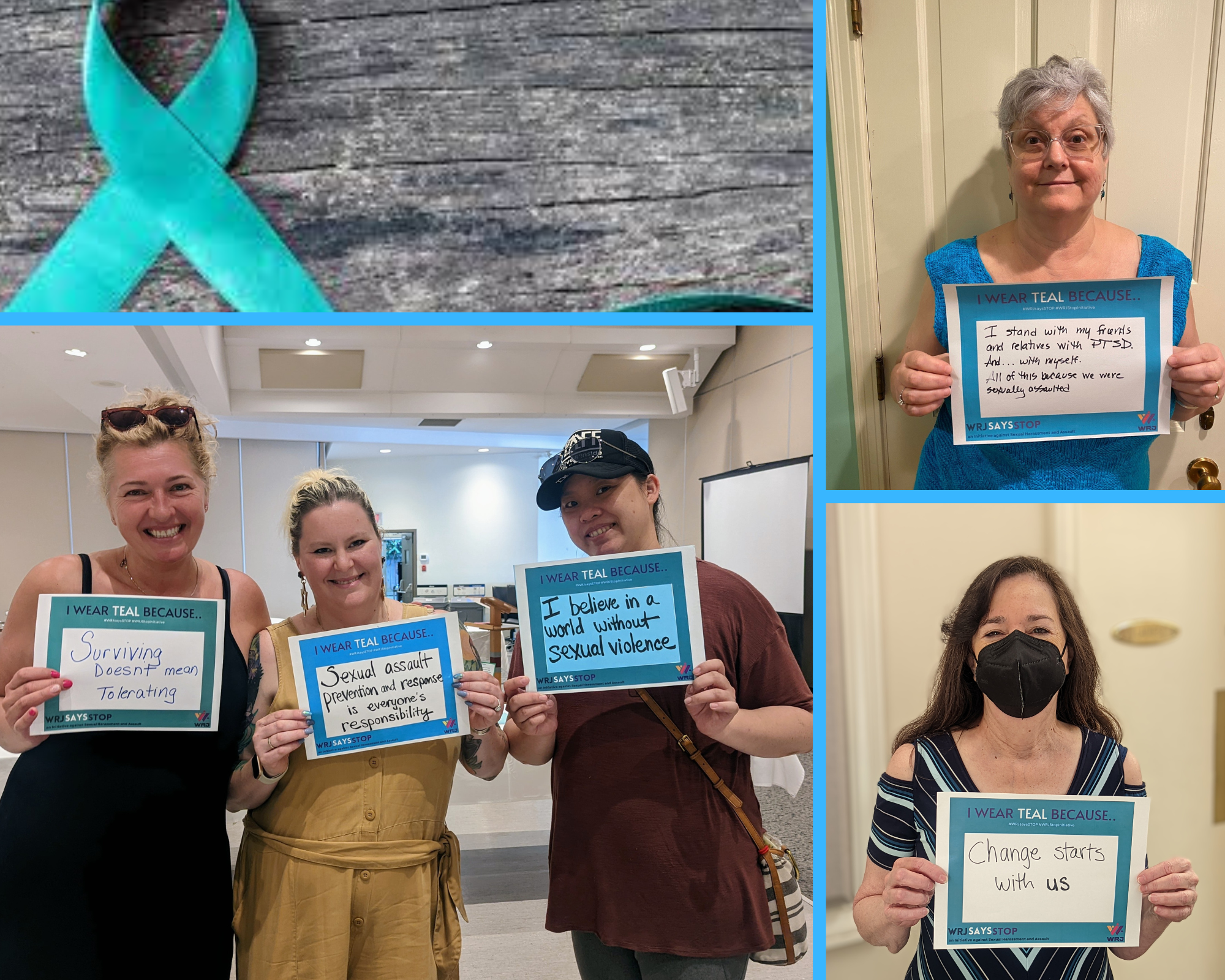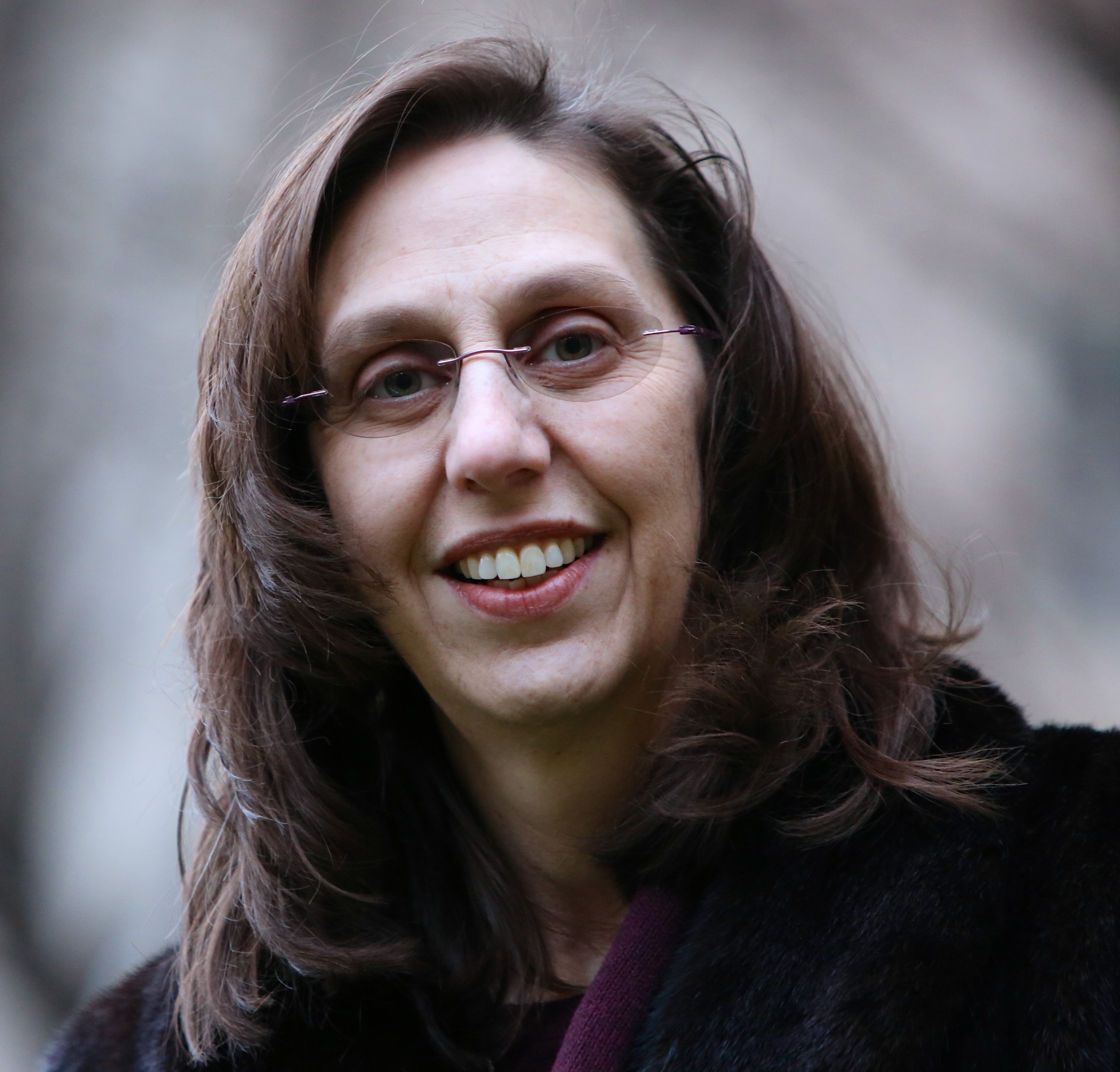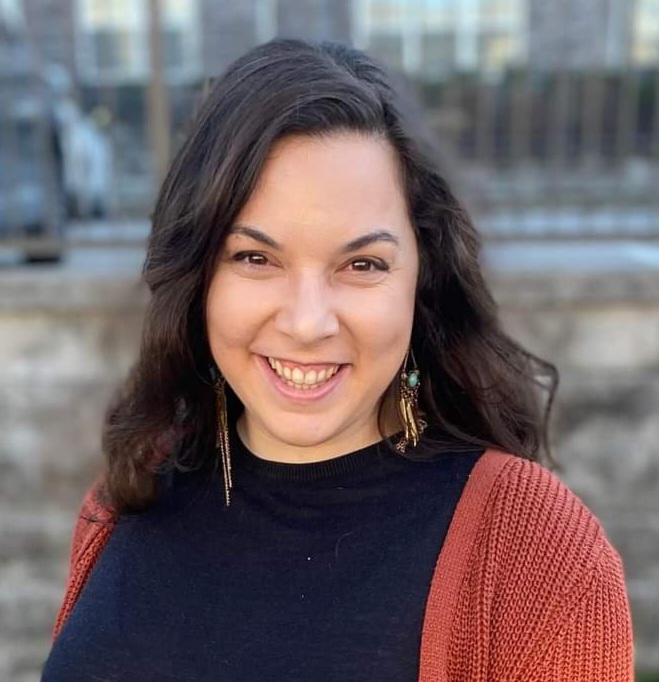
April marks the annual recognition of Sexual Assault Awareness Month (SAAM). WRJ is committed to addressing the discrimination many of us, unfortunately, have witnessed or experienced. As we look around our synagogues, it’s important to be aware that if you dig deep enough, you will find many people have stories. When we allow space for vulnerability and sharing, it keeps people from suffering in silence and allows room for change. For that change to make a lasting impact, it takes commitment from all members of a congregation or community. Whether you’re a new parent of a child in the early childhood education center or the beloved Rabbi Emeritus, you have the power to help transform the culture in your community.
Through WRJ says STOP: An Initiative Against Sexual Harassment and Assault, we have built a platform of information, materials, tools, and curated resource links to help us work together and open conversation in an effort to ultimately create change in our sacred communities. Our communities are at different stages in this work. Whether you are just starting the conversation, or have adopted an Ethics Code and are wondering, “What’s next,” WRJ says STOP can help you take the next steps. Additionally, the “I Wear Teal Because…” campaign is designed to help people become advocates in the fight against abuse of power dynamics, gender-based and sexual harassment and assault. The Teal campaign guides you in celebration of your community accomplishments and engages everyone to take personal responsibility for their part in this work. We encourage you to celebrate your progress, and then think about what more can be done, where you want to go, and how you can engage your communities. There is no better day than today to strive for difference.
Change is hard. Particularly in arenas that involve painful and traumatic personal experiences, change requires us to make the active decision to work outside of our comfort zones, and bring others into the process. Along the way, there will be bumps and roadblocks, disagreements and delays, anger and pain. Harassment policies and an Ethics Code are essential steps in creating or enhancing safe, respectful, and equitable spaces—but they are neither the beginning nor the end. Author Geoffrey A. Moore, in the book Crossing the Chasm, addresses the gap that can exist between early adopters and engaging a full community. For cultural changes to really take hold, they must move from the “early adopters” leading the charge, to become values that are embraced by the community as a whole. Moore teaches us that we have to do intentional work to cross that chasm and build the momentum that creates true lasting cultural change. The WRJ says STOP platform provides the tools to help you cross the chasm and make lasting change in your sacred community.
In the second WRJ says STOP webinar, Marissa Miciotto (she/her), Statewide Training Specialist for the Sexual Assault Center in Tennessee, helped us get a deeper understanding of sexual and gender-based harassment in the context of the Re-Visioned Sexual Assault Continuum. As part of her teaching, Marissa emphasized that the work to reduce the incidences of harm begins very early in the Continuum and that we can reduce the possibility of violence by doing intentional work on the overall culture and environment of our communities. She answered a few questions for us to help us cross the chasm.:
1. What makes it hard for an organization to talk about Sexual Assault and Harassment?
Often, organizations are afraid to open that dialogue due to fear that they will respond incorrectly or not have the appropriate support in place if someone within the organization does then disclose sexual assault or harassment. Sometimes, the belief that sexual assault or harassment couldn’t happen within a particular organization, the idea that it couldn’t happen here, also prevents the conversation from happening. Unfortunately, it can happen anywhere.
2. What’s the first question you usually get when doing trainings?
Most often, people want to know how to help and how to respond to disclosures. They want to support victim-survivors in the best way possible and learn more about trauma-informed responses. There are also often clarifying questions about the root of sexual violence or why sexual violence occurs.
3. What stops people from taking steps to make change?
There are many factors that make responding to sexual violence difficult. People and organizations may feel overwhelmed by the scope of the issue. We understand that sexual violence isn’t an isolated issue, it doesn’t exist in a vacuum, so it could be daunting to consider how to address the issue in an appropriately expansive and intersectional way. When we feel this way, it may be helpful to honor what we’re doing to work alongside or support other individuals, organizations, and communities that are addressing related justice issues. Support and collaboration show us how much power we have to change culture and systems to create safer communities.
In some instances, people also may not feel they have the power, individually or structurally, to make meaningful change. Of course, we all can advocate and support victim-survivors within our own capacities, but it’s also natural to feel stalled, even temporarily, by existing limitations. Some situations require external assistance and may be too much for us to handle alone. Asking for help from local or national professionals in sexual violence response services is an excellent way to take care of yourself and others.
4. Where do you want to get people to in their efforts to address Sexual Assault and Harassment?
To move towards supporting victim-survivors and lessening instances of sexual violence, I would love for there to be increased knowledge of the issues; this includes the scope of the problem, the power and control dynamics that are always inextricably tied to sexual violence, prevention education, ways to support victim-survivors, and shared trauma-informed language to support these efforts. We can bring this knowledge into our communities by hosting trainings or educational events and seeking out narratives from victim-survivors.
I would also love for organizations, community groups, and individuals to have knowledge of and connection to resources existing within their communities and in the larger digital community. These would be the people and places that could be reached in times when support, information, and referrals are needed.
5. What would you want us to know about this topic?
Despite the ways that sexual violence has historically been addressed and viewed, it is not a siloed problem or a series of isolated events. Sexual violence is a tool of oppression used to exert power and control. It’s a complex issue that needs and deserves nuanced, survivor-centered understanding and responses. Also, it is never the victim-survivor’s fault. If you have been assaulted or harassed, it is not your fault.
6. What would your wish be by SAAM next year that is attainable?
I would love to see the movement continue to be more inclusive and intersectional. It would also be wonderful to see communities continue supporting this issue through informed dialogue and action throughout the year, continuing the momentum that is often started during Sexual Assault Awareness Month (SAAM). That could include things like having guest speakers on topics related to sexual violence, taking critical looks at internal practices or policies that could unintentionally enable gender-based violence, supporting and evolving practices and policies that work to eradicate sexual violence and support victim-survivors, and creating small groups or book clubs to have transparent and safe spaces to discuss and address sexual violence within a community or organization.
Please refer to the following resources for more information on WRJ says STOP and the URJ Ethics Accountability work to help your community cross the chasm to lasting positive change:
Union of Reform Judaism Ethics Accountability
WRJ says STOP webinars
Related Posts

Continuing to Educate and Empower People Together

My Challah-Making Experience



